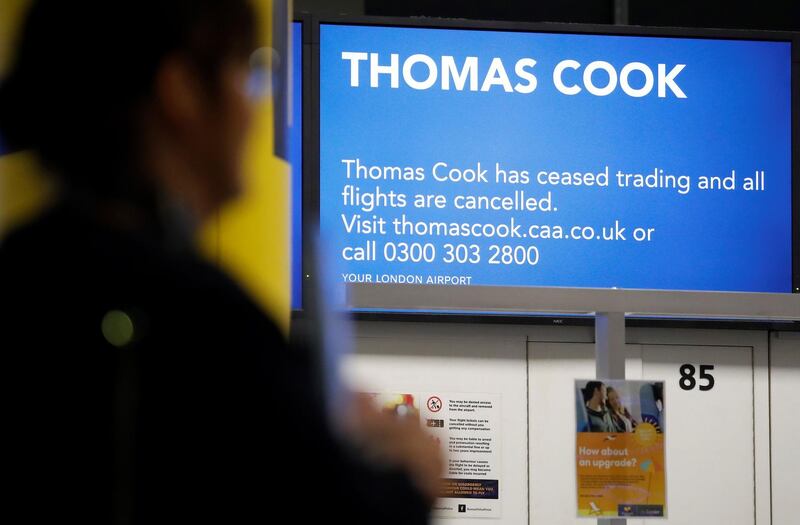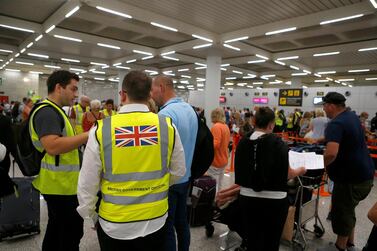Post-holiday blues don’t come much grimmer than this.
No one was expecting a particularly bright future for Thomas Cook Group, the UK package holiday company that filed for receivership in the early hours of Monday morning. The way the business came crashing to earth, however, is shocking.
Rather than entering insolvency proceedings and attempting to salvage the remnants of the 178-year-old business from the wreckage, directors have hung up the "For Sale” sign and gone straight to liquidation.
That’s not how these things normally go. In a typical business insolvency, administrators try to keep the business trading while the company’s lenders swap their debt for equity to minimise their losses. While employees and customers will get bailed out by government — or industry-backed programmes in the UK, that can make a real difference to unsecured creditors such as suppliers, other tour operators and lower-ranked lenders to the group.
By contrast, Thomas Cook will cease trading immediately and all its assets will be used for a mass fire-sale to pay back its most senior lenders.
The last prominent UK business to go to compulsory liquidation in this way was the services and construction group Carillion, which ceased trading in 2018. That was in some ways an acknowledgement that there was little to salvage from the process — Carillion’s main assets were expected payments on contracts that would never be sufficient to cover its liabilities.
The same shouldn’t really be true of a travel operator. Thomas Cook had £553 million (Dh2.5 billion) of aircraft and parts on its balance sheet at the end of March, plus £688m in cash and £956m in receivables owed to it. While working capital was deep in the red with short-term liabilities that were almost twice short-term assets, that’s a normal and potentially virtuous situation for a travel company that takes deposits from tourists before it has to pay for their vacations.
More to the point, the company was still recorded as having £1.96bn in intangible assets, equivalent to about two-fifths of the total asset position. That sum is worthless now, but it’s notable that auditors Ernst & Young signed off on the assessment as recently as May, while noting an uncertainty about whether the company could continue as a going concern. It’s extraordinary, if you believe that judgment, that in the intervening four months things have deteriorated to the extent that Thomas Cook is being broken up for scrap.
A more telling factor comes from looking at the seasonal calendar. Thomas Cook’s cash flows traditionally zigzag from season to season, with money flowing in during the summer months through September and rushing out again in the period through March. We’re currently just over a week away from the point when that switch happens and suppliers who’ve been providing services through the summer start lodging their bills en masse. That crowd is likely to be left short by the current set-up. (We’ve seen this pattern before: Monarch Airlines, a UK low-cost carrier that collapsed in 2017, went into administration on October 2.)
The situation has clearly been a difficult one. Main shareholder Fosun International had been trying for months to nail down a bailout package that would give it control of the tour operator and a minority stake in the airline to get around foreign-ownership rules for carriers. Hedge funds sought to block the plan because it would have stopped them collecting on credit default swaps. Bank creditors didn’t want to take all the pain themselves.
In one sense, Thomas Cook’s demise was simply the overdue result of a business model that has passed its sell-by date thanks to holidaymakers booking their flights and hotels online rather than in a single package bought in a town centre travel shop.
Still, just over a year ago this business had a market capitalisation north of £1 billion; four months before that, it was above £2 billion. Rather than gliding to the runway, this company has dropped out of the sky. The pilots in Thomas Cook’s boardroom must answer for why things had to end with such a crash.
Bloomberg







